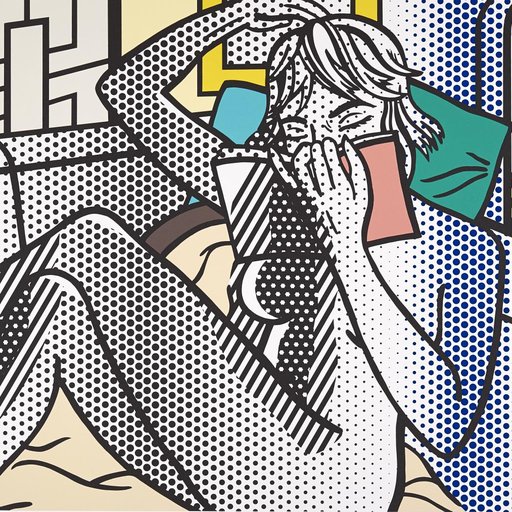<FollowQuerySet [{'obj_id': 89, 'obj_name': 'M+B', 'follow_type': 'partner', 'num_follows': 1765}, {'obj_id': 1, 'obj_name': 'America: Now+Here', 'follow_type': 'partner', 'num_follows': 2164}, {'obj_id': 25, 'obj_name': 'Lincoln Center for the Performing Arts', 'follow_type': 'partner', 'num_follows': 2176}, {'obj_id': 16, 'obj_name': 'David Zwirner', 'follow_type': 'partner', 'num_follows': 7490}, {'obj_id': 408, 'obj_name': 'Pace Prints ', 'follow_type': 'partner', 'num_follows': 2675}, {'obj_id': 274, 'obj_name': 'Electric Works', 'follow_type': 'partner', 'num_follows': 1474}]>
<FollowQuerySet [{'obj_id': 89, 'obj_name': 'M+B', 'follow_type': 'partner', 'num_follows': 1765}, {'obj_id': 1, 'obj_name': 'America: Now+Here', 'follow_type': 'partner', 'num_follows': 2164}, {'obj_id': 25, 'obj_name': 'Lincoln Center for the Performing Arts', 'follow_type': 'partner', 'num_follows': 2176}, {'obj_id': 16, 'obj_name': 'David Zwirner', 'follow_type': 'partner', 'num_follows': 7490}, {'obj_id': 408, 'obj_name': 'Pace Prints ', 'follow_type': 'partner', 'num_follows': 2675}, {'obj_id': 274, 'obj_name': 'Electric Works', 'follow_type': 'partner', 'num_follows': 1474}]>
<FollowQuerySet [{'obj_id': 89, 'obj_name': 'M+B', 'follow_type': 'partner', 'num_follows': 1765}, {'obj_id': 1, 'obj_name': 'America: Now+Here', 'follow_type': 'partner', 'num_follows': 2164}, {'obj_id': 25, 'obj_name': 'Lincoln Center for the Performing Arts', 'follow_type': 'partner', 'num_follows': 2176}, {'obj_id': 16, 'obj_name': 'David Zwirner', 'follow_type': 'partner', 'num_follows': 7490}, {'obj_id': 408, 'obj_name': 'Pace Prints ', 'follow_type': 'partner', 'num_follows': 2675}, {'obj_id': 274, 'obj_name': 'Electric Works', 'follow_type': 'partner', 'num_follows': 1474}]>
<FollowQuerySet [{'obj_id': 89, 'obj_name': 'M+B', 'follow_type': 'partner', 'num_follows': 1765}, {'obj_id': 1, 'obj_name': 'America: Now+Here', 'follow_type': 'partner', 'num_follows': 2164}, {'obj_id': 25, 'obj_name': 'Lincoln Center for the Performing Arts', 'follow_type': 'partner', 'num_follows': 2176}, {'obj_id': 16, 'obj_name': 'David Zwirner', 'follow_type': 'partner', 'num_follows': 7490}, {'obj_id': 408, 'obj_name': 'Pace Prints ', 'follow_type': 'partner', 'num_follows': 2675}, {'obj_id': 274, 'obj_name': 'Electric Works', 'follow_type': 'partner', 'num_follows': 1474}]>
<FollowQuerySet [{'obj_id': 89, 'obj_name': 'M+B', 'follow_type': 'partner', 'num_follows': 1765}, {'obj_id': 1, 'obj_name': 'America: Now+Here', 'follow_type': 'partner', 'num_follows': 2164}, {'obj_id': 25, 'obj_name': 'Lincoln Center for the Performing Arts', 'follow_type': 'partner', 'num_follows': 2176}, {'obj_id': 16, 'obj_name': 'David Zwirner', 'follow_type': 'partner', 'num_follows': 7490}, {'obj_id': 408, 'obj_name': 'Pace Prints ', 'follow_type': 'partner', 'num_follows': 2675}, {'obj_id': 274, 'obj_name': 'Electric Works', 'follow_type': 'partner', 'num_follows': 1474}]>
<FollowQuerySet [{'obj_id': 89, 'obj_name': 'M+B', 'follow_type': 'partner', 'num_follows': 1765}, {'obj_id': 1, 'obj_name': 'America: Now+Here', 'follow_type': 'partner', 'num_follows': 2164}, {'obj_id': 25, 'obj_name': 'Lincoln Center for the Performing Arts', 'follow_type': 'partner', 'num_follows': 2176}, {'obj_id': 16, 'obj_name': 'David Zwirner', 'follow_type': 'partner', 'num_follows': 7490}, {'obj_id': 408, 'obj_name': 'Pace Prints ', 'follow_type': 'partner', 'num_follows': 2675}, {'obj_id': 274, 'obj_name': 'Electric Works', 'follow_type': 'partner', 'num_follows': 1474}]>






